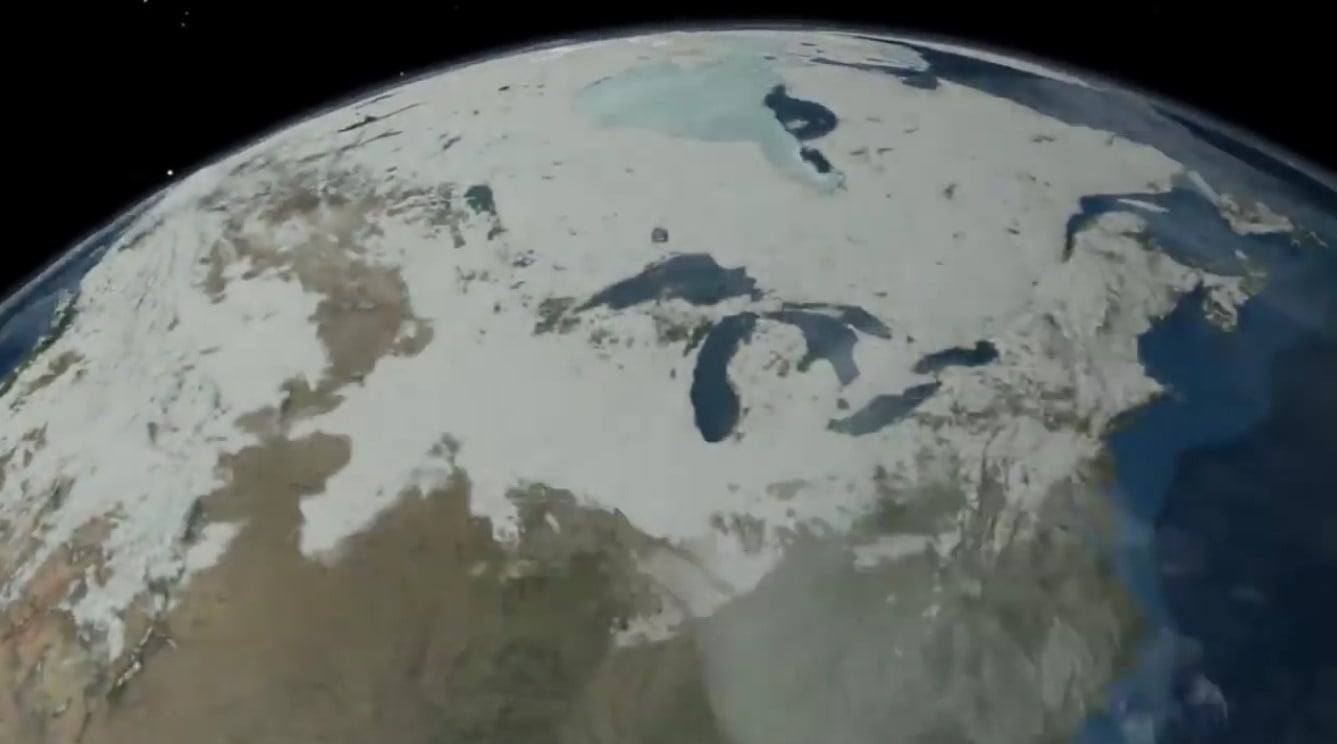Despite reports of a potential mini ice age, global warming in 2017 reached near-record levels, bringing the oceans to their hottest temperature yet.
Warming of the Oceans
United States scientists announced a few days ago that 2017 was the third warmest year recorded in history, but it appears as if that isn’t the only recent problem associated with global warming: the oceans are the hottest they’ve ever been.
Despite this frustrating revelation, it’s not at all surprising to the community of environmental scientists studying the effects of global warming.
Dr Dann Mitchell, a researcher at the University of Bristol, stated that “The most recent global temperature observations are in line with what we expected, both from our underlying theory but also our model projections and understanding of the climate system…the atmosphere is warming, but almost 1°C to date, and we are getting ever closer to the Paris Agreement target of .5°C which we are so desperately trying to avoid,” reports Climate News Network.
Even if this change was expected, it’s still another confirmation of the dire condition we find the Earth in – largely due to emissions from the combustion of fossil fuels. Scientists are urging legislators to take action to slow down or reverse the heating of the planet and avoid the eventual destruction of numerous habitats across the globe.
The Environmental Study
The study that confirmed that global warming is causing the oceans to rise to unprecedented temperatures came from the Institute of Atmospheric Physics/Chinese Academy of Science, and was published in the journal Advances in Atmospheric Sciences.
The authors of the paper state that in 2017, the oceans in the top 2000 meters of water were warmer than the second warmest year, 2015. They were also far above the 1981-2010 climatological reference period. The team also confirmed that “The biggest natural influence on the climate is being dwarfed by human activities – predominantly CO₂ emissions.”
According to the Institute of Atmospheric Physics, the last five years have been the five warmest years for the ocean in recorded history, and the influence of humanity on these problems shows no signs of slowing down.
Occasionally, there’s a period event in the Pacific called El Niño that boosts worldwide temperatures. The fact that worldwide readings were so high is especially concerning considering that there was no El Niño in 2017.
“It’s extraordinary that temperatures in 2017 have been so high when there’s no El Niño. In fact, we’ve been going into cooler La Niña conditions,” said Professor Stott to BBC News.
Although the rise in temperature this year was very concerning, Climate News Network reports that WMO secretary-general Petteri Taalas warned that the long-term temperature trend from global warming is far more ominous than a particularly hot year.
“That trend is an upward one. Seventeen of the 18 warmest years on record have all been during this century, and the degree of warming during the past three years has been exceptional…Arctic warmth has been especially pronounced, and this will have profound and long-lasting repercussions on sea levels, and on weather patterns in other parts of the world.”
Scientists urge rapid change if we are to recover from this global warming disaster. While the immediate implications might not be apparent, the world is on a path towards a very unpleasant future.





